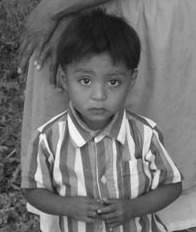How Much Do We Deserve?
November 26, 2014 A friend of mine says that the real secret to every sermon lies in the experience that made the minister want to preach it. If that’s the case, then the moment of inspiration for what I have to say came at a glitzy mall near my home in suburban Boston, just before Christmas. In the midst of the crowd of shoppers heavily laden with purchases, I saw a teenager bopping along, listening to his CD player, wearing a T-shirt inscribed, “ONLY YOU CAN PREVENT NARCISSISM!”
A friend of mine says that the real secret to every sermon lies in the experience that made the minister want to preach it. If that’s the case, then the moment of inspiration for what I have to say came at a glitzy mall near my home in suburban Boston, just before Christmas. In the midst of the crowd of shoppers heavily laden with purchases, I saw a teenager bopping along, listening to his CD player, wearing a T-shirt inscribed, “ONLY YOU CAN PREVENT NARCISSISM!”
That is the spiritual ailment of our age, you know: the sense that all that matters is what I feel, or want, or think I deserve. Then, driving home, I found myself listening to my own new CD – by “Sweet Honey in the Rock,” those amazing African-American women, one of whom is an active Unitarian Universalist. “I been thinkin’ ’bout how to talk about greed,” they were singing. “Greed moves like a virus seeking out everyone…. Nothing seems to stop it once it enters your soul…. Greed driven people created slavery…. Greed is so sneaky, hard to detect in myself; I see it so clearly in everybody else.”
In June 2000, delegates at our General Assembly voted to adopt a statement of conscience entitled “Economic Injustice, Poverty and Racism.” The statement begins: “We, the member congregations of the Unitarian Universalist Association, hereby rededicate ourselves to the pursuit of economic justice, an end to racism, and an end to poverty.” But it’s one thing to talk about the economic issues, and another thing entirely to live them. It’s easy to identify with the young man described in the 19th chapter of the Gospel of Matthew: when this man asks Jesus what he must do to have eternal life, Jesus recites the essentials of Jewish law – the ten commandments and the injunction to love one’s neighbor as oneself. But the young man is looking for extra credit – for recognition as someone truly good. He says, “I have kept all these; what do I still lack?” The Gospel states: “Jesus said to him, ‘If you wish to be perfect, go, sell your possessions, and give the money to the poor, and you will have treasure in heaven….’ When the young man heard this, he went away sorrowful, for he had many possessions.” We want to be good, but it is hard not to be sorrowful in the face of advice to share one’s many possessions with those who have little or nothing.
 In 1998 Robert Bellah addressed our GA in Rochester, NY. He talked about the effects of hyper-individualism in our society, saying, “It is no accident that…the United States, with its high valuation of the individual person, is nonetheless the only North Atlantic society where such a high percentage of people live in poverty. Just when we are moving into an ever-greater valuation of the sacredness of the individual person, our capacity to imagine a social fabric that would hold individuals together is vanishing. And this is in no small part due to the fact that our religious individualism is linked to an economic individualism which, though it makes no distinction between persons except monetary ones, ultimately knows nothing of sacredness. If the only standard is money, then all other values are undermined.” Seven years later, his words ring just as true.
In 1998 Robert Bellah addressed our GA in Rochester, NY. He talked about the effects of hyper-individualism in our society, saying, “It is no accident that…the United States, with its high valuation of the individual person, is nonetheless the only North Atlantic society where such a high percentage of people live in poverty. Just when we are moving into an ever-greater valuation of the sacredness of the individual person, our capacity to imagine a social fabric that would hold individuals together is vanishing. And this is in no small part due to the fact that our religious individualism is linked to an economic individualism which, though it makes no distinction between persons except monetary ones, ultimately knows nothing of sacredness. If the only standard is money, then all other values are undermined.” Seven years later, his words ring just as true.
Globally, we are six billion people now on this planet. According to the UN, at least two billion live on $2 a day or less. Two-thirds of those live on less than one dollar a day. Issues of covenantal commitment to the common good and to distributive justice are everywhere. On my shelf at home I keep a painted papier-maché chalice given to me by the banghi women of Ahmedabad, in India. Banghis are those who by caste custom must earn their living in the villages cleaning out other people’s latrines, and in the cities gathering refuse in the streets, as “paper-pickers.” With help from the UU Holdeen India Program, 17,000 banghi women in Ahmedabad were organized into a union – which now has a contract with the city to provide all its recycling services, and for a living wage.
I say that our support for those women illustrates the principle, “from those to whom much has been given, much is expected.” Ethicist Peter Singer, in an essay on famine, goes so far as to suggest there should be an economic formula for our responsibilities. If we really lived out a sense of social solidarity with others, then someone with $50,000 in income, he says, would have to devote more than $20,000 of that to helping the neediest. As children’s writer Shel Silverstein once said in verse:
I’ll share your toys, I’ll share your money
I’ll share your toast, I’ll share your honey,
I’ll share your milk and your cookies, too.
The hard part’s sharing mine with you.
We know that we have an obligation to do justice, and to love mercy, and to walk humbly enough to empower others to develop their full human, spiritual and moral potential. But we ‘ re afraid. Afraid that we don’t know how, perhaps. But also afraid to let go of what makes us feel safe. So many of us fall back on the spiritual temptation to say that whatever we have, we deserve. Because we earned it. As though no one else played a role. Not our parents, teachers, colleagues, friends, or mentors. Not our values or our God. Not those who work for less than we do. Not anyone or anything. Then I can hear my mother repeating what she once said on meeting the late Sen. Joe McCarthy: “Hm! Another self-made man who worships his creator!”
How much do we deserve? In a brilliant book with the same title as this sermon, the Rev. Richard Gilbert suggests some principles for distributive justice. He quotes what the Catholic bishops wrote to their people in the 1986 pastoral letter, “Economic Justice for All”:
Distributive justice… calls for the establishment of a floor of material well-being on which all can stand. This is a duty of the whole of society, and it creates particular obligations for those with greater resources. This duty calls into question extreme inequalities of income and consumption when so many lack basic necessities. Catholic social teaching does not maintain that a flat, arithmetic equality of income and wealth is a demand of justice, but it does challenge economic arrangements that leave large numbers of people impoverished. Further, it sees extreme inequality as a threat to the solidarity of the human community, for great disparities lead to deep social divisions and conflicts.
What does our conscience say?
Our political and economic views and circumstances will vary. But a shared religious view of economic justice, I believe, should not rest on the political, or even the ethical level. It has to go deeper. It has to ask the underlying spiritual question. What blocks us from empathy with the suffering and deprivation of others? What keeps us from feeling solidarity with other people’s struggles for justice? What keeps our society, in all its abundance, in such a state of “moral underdevelopment,” as the bishops call it? Take the word “entitlement.” When it becomes a dirty word for public policy toward the poor,
Why does it remain so apt a description of our society as “a culture of entitlement”?
I know. Among the poor, however clearly we see the objective patterns of oppression, we can be put off by the self-defeating patterns of behavior that some call ” internalized oppression. ” When that’s the case, perhaps we should maintain our sense of human sisterhood and brotherhood the same way that Mary Pipher suggests a good marriage stays together: t ry looking in the mirror and saying to yourself, “You know: y ou’re no prize either!”
You see, only you, and you, and you, and I, together can prevent narcissism, can prevent a culture of narcissistic self-involvement from sapping our souls. Only we together can learn to talk about greed. To see it not just out there in others, but in ourselves here as well. To support, not an ideology, but a spirituality that moves toward economic justice. Through more responsible consumption. Through the real empathy that must precede and support all effective public policies. In the United States, those policies might include a higher minimum wage, affordable housing, health insurance and child-care to help low-income families, and debt reduction for the world’s poorest countries.
Asking how much I deserve keeps me trapped in my narcissism. Looking around me, however, I’m kept mindful of the needs of others. I count my many blessings. I remember how often I’ve been allowed to drink at wells that I did not dig. And I discover again that deeper part of my soul that is both generous and courageous for justice.
When I call for the weekly offering I often say, “Freely have we received of gifts that minister to our needs of body and spirit. Gladly we now bring to our religious community and its wide concerns a portion of this bounty.” And as the hymn insists, “On the road from greed to giving, Love will guide us through the hard night.”
A graduate of Harvard College and Harvard Divinity School, Buehrens is the author or co-author of five books on Unitarian Universalism. He has been married since 1972 to the Rev. Gwen Langdoc Buehrens, a retired priest of the Episcopal Church. They are the parents of two adult daughters and have three grandchildren. From 2002 to 2012 Buehrens was national co-chair of Freedom to Marry. He is currently vice chair of the board of UUSC.
- How Much Do We Deserve? - November 26, 2014
Renew Your Membership
We invite you to join your fellow CLFers to renew your CLF membership and stewardship of the CLF for another year.
Support the CLF
Can you give $5 or more to sustain the ministries of the Church of the Larger Fellowship?
Newsletter Signup
About
Quest for Meaning is a program of the Church of the Larger Fellowship (CLF).
As a Unitarian Universalist congregation with no geographical boundary, the CLF creates global spiritual community, rooted in profound love, which cultivates wonder, imagination, and the courage to act.
Contact
Church of the Larger Fellowship Unitarian Universalist (CLFUU)
24 Farnsworth Street
Boston MA 02210

